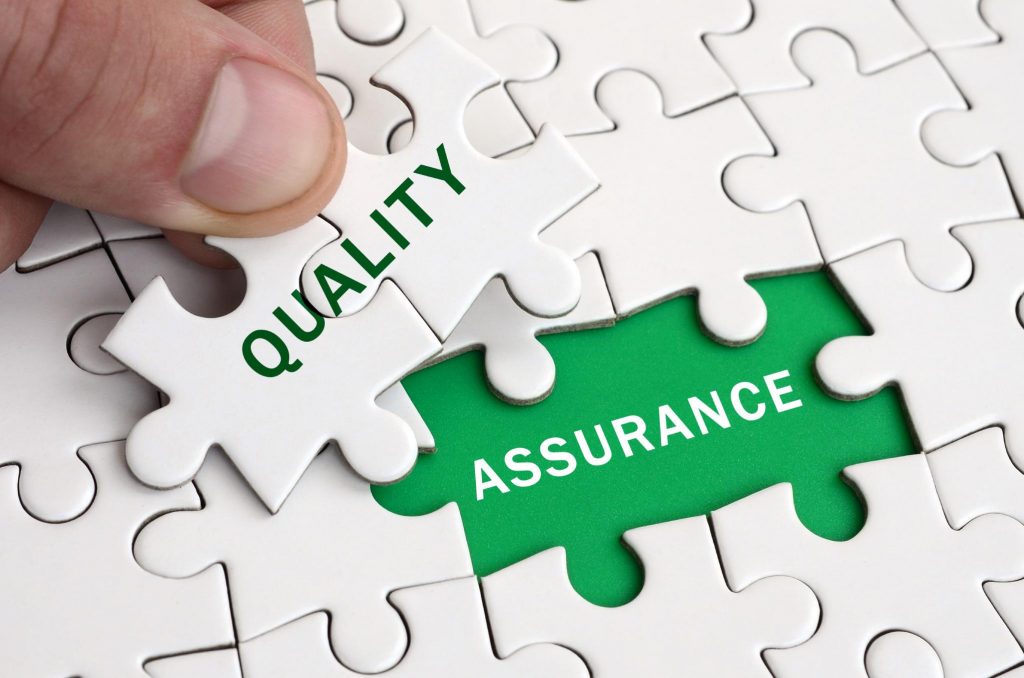Quality assurance (QA) is the process of identifying, investigating, and eliminating errors and defects in a product. It is an essential part of software development. You can read our previous blog post, a deep dive into Software Quality Assurance (SQA), where we have covered all the fundamentals of SQA.
In short, quality assurance ensures that each of your products is perfect from start to finish. For any released software products, they have undergone strict Software Quality Assurance before their public “reveal” to avoid unexpected crashed encounters, disrupting customer experiences, irritated interfaces, and more.
Quality Management System
Quality Management System (QMS) is a formalized framework for defining, measuring, and improving product or service quality throughout its life cycle (from conception through design through manufacturing). It provides an organized structure for managing all aspects of QA activities, including risk identification, evaluation & control (R&C), measurement & reporting mechanisms, etc., which ultimately leads to continuous improvement initiatives within any organization.
One of the popular Quality Management Systems in use is The ISO 9000 series, a set of internationally recognized standards for quality management. They were developed by the International Organization for Standardization (ISO) to help organizations worldwide meet a consistently high level of quality of their products.
Organizations that implement ISO 9000 typically see improvements in quality and productivity. The standard has been adopted by millions of businesses worldwide and is recognized as the global benchmark for quality management systems. Once a QMS is in place, it must be maintained and continually improved to stay effective. This requires a commitment from all members of the organization to continuously raise the bar on quality. With the right tools and attitude, however, any organization can implement and maintain a world-class quality management system.
Role of Quality Assurance in software development
Improve and maintain product quality
Quality Assurance is hands-down the most vital stage of the software development lifecycle since it guarantees that every product or service produced meets its end-users expectations. Without QA, developers may run the risk of delivering faulty systems with unsatisfactory results.
Testing software often requires a combination of manual and automated approaches, alongside specialized tools; QA testers utilize bug-tracking programs and test management applications to ensure that the product meets quality standards.
Security is taken seriously
The need for software security is increasing as our reliance on technology grows. Software vulnerabilities can be exploited by hackers to access our personal information or damage our systems. This is why companies need to have a Quality Assurance process and techniques in place that helps identify and fix security issues before they can be exploited.
Satisfying customers and keeping your company reputation at bay
Customer satisfaction is key to any business. It’s what keeps customers coming back and what builds a company’s reputation. By testing products before they go to market, all potential problems are caught and fixed by Quality Assurance processes and techniques before customers have a chance to experience them.
This not only makes customers happy by ensuring that they’re getting a quality product, but it also prevents negative word-of-mouth from spreading about your company. Additionally, Quality Assurance And Testing Team can work to improve customer satisfaction by troubleshooting any issues that may arise after a product launch. By providing fast and effective support, QA can help keep customers happy and coming back for more.
Different Roles In The Quality Assurance Team
The in-house Quality Assurance team is composed of a variety of roles, including but not limited to: Quality Assurance Analyst/ Test Analyst, Quality Assurance Lead / QA Team Leader, and Quality Assurance Manager / QA Head. The size of the team may vary depending on the project’s requirements and company procedures. Each role has its own unique set of skills and responsibilities, together they form an effective unit for testing products.
QA Analyst
Responsible for testing software components within the application. QA Analyst liaises with not only the Business Analyst or Product Owner to come up with testable conditions to verify whether or not the product is up to the users’ requirements while defining success criteria with stakeholders to determine testing strategies that fit the products’ quality goals. They use test cases to validate the system’s performance, by executing specific tests to assess whether or not the system meets requirements. QA Analyst is also responsible for software documentation, recording all the issues as well as their resolutions, and reporting to the QA Lead.
QA Lead
Supervising and coordinating closely with the QA Team. The QA Lead can be hands-on when needed, he/she is responsible to create and maintain test planning, making sure the QA analyst is documented properly.
QA Manager
In charge of leading the QA team, preparing test strategies, and assigning tasks to team members. They are the auditors for QA Documentation as well as the process. Staying within the timeline and making sure progress is promptly on time, guides the team as needed to achieve the defined set of goals. QA Manager is the middleman between the development team and QA team members. He/she is the backbone of the QA team by all means.
The QA team can be composed of internal and external testers.
Internal testing teams typically consist of in-house QA personnel that we have briefly mentioned in the previous section. External testing teams are often contracted out to third-party organizations which specialize in quality assurance services. These teams have expertise in areas such as penetration testing, automated tests, root cause analysis, customer support troubleshooting, etc., which complements the work done by an internal team. By utilizing external resources, companies can gain access to specialized skill sets as well as more resources for a higher coverage area when it comes to testing products before they go live.
Overall, having a mix of internal and external testers on your QA team is not as madness as many have thought out to be. Getting access to extra qualified software quality tester on hand, as well as gaining perspective from outsiders on the products themselves are the obvious perks. Establishing communication and setting clear Scope of Work for both internal and external seems to be the key to keeping both parties working smoothly and efficiently.
Outsourcing QA team - excellent option for startups & SMEs
With limited resources, Startups & SME organizations are always on the hunt for the optimal solutions to tackle the development of their product at their best performance. For these companies, choosing a software testing services company to a specialized team of professionals brings good more than harm. Not only does off-shore QA provide cost savings by reducing the need to hire and train personnel in-house, but it also allows for access to high-quality resources that would otherwise be unavailable. This includes having a pool of experienced professionals with specialized skills who are familiar with the product being tested and making sure the products are compliant with industry standards and regulations while mitigating the risk of financial loss or reputation damage due to technical issues or security flaws.

SHIFT ASIA is not only the leading Software Quality Assurance service provider but also excels in software development services.
Furthermore, outsourcing allows companies to tap into emerging trends and technologies that may not be available within their organization. By keeping up with the latest advancements in software testing tools and techniques, off-shore QA teams can help ensure that products meet customer expectations and that satisfaction levels remain high. This also gives companies more flexibility when coming to meeting deadlines and other business objectives.
Finally, working with offshore teams can provide advantages in terms of scalability and responsiveness. By having dedicated personnel available on demand 24/7, companies can respond quickly to changing market conditions without needing to invest heavily in personnel costs or infrastructure upgrades. This means that businesses can focus their efforts on developing innovative products rather than worrying about meeting deadlines or dealing with quality control issues.
Quality assurance is an important process that should not be overlooked in software development. There are different roles and responsibilities within a QA team, so it’s important to choose the right people for the job if you don’t want to go through the hassle of doing so, outsourcing QA teams can be a great option for companies who want to cut down cost without sacrificing quality. Off-shore Software testing and software quality assurance are the services that SHIFT ASIA specializes in. We are well-known for our high-quality Software Quality Assurance with the best test automation, manual automation, system testing, etc. Apart from SQA, SHIFT ASIA also provides exceptional software consultancy services. Contact our support team for more information.
ContactContact
Stay in touch with Us








